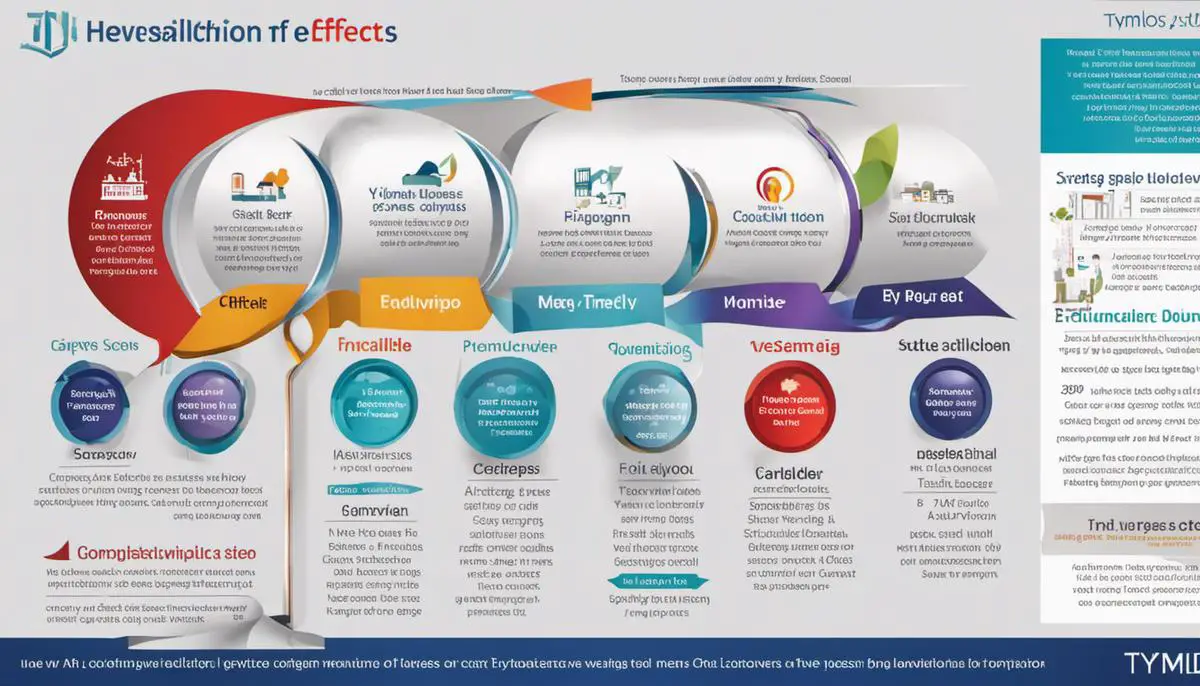Is hair loss a side effect of Tymlos? Well, when it comes to understanding medications that causes hair loss, an informed public is an empowered one. This holds true particularly for Tymlos, a medication known for its uses in treating specific conditions. In order to make utilising Tymlos more informed, it’s crucial to fully understand what this medication is, its functions, and the expected outcomes after its use.
This includes becoming knowledgeable about the array of side effects that may be associated with it, both minor and major. Moreover, understanding the frequency of these side effects can afford valuable insight. In this context, an intriguing potential side effect emerges: hair loss. This proposition invites further exploration into whether it’s a proven outcome of Tymlos use.
Understanding Tymlos: Uses and Effects
Tymlos, also known as abaloparatide, is a medication primarily used in the treatment of osteoporosis in postmenopausal women. It is a synthetic analog of parathyroid hormone that promotes bone mineral density enhancement and significantly reduces the risk of fractures. This medication functions by stimulating bone formation and increasing bone mineral density.
Tymlos and Hair Loss
Adverse effects are possible with any medication, and Tymlos is no exception. However, hair loss is not prominently listed as a side effect of Tymlos. In clinical trials and reported side effects, hair loss does not appear as a prevalent or common adverse reaction to the medication. The common side effects include hypercalciuria, dizziness, headache, palpitations, fatigue, upper abdominal pain, vertigo, and nausea.
Unreported Side Effects
It’s noteworthy that while hair loss isn’t listed as a significant side effect of Tymlos, this does not entirely rule out the possibility. Each individual may respond differently to medication. Some less frequent or unreported side effects may not appear in the list of officially recognized side effects. Therefore, if a patient using Tymlos experiences hair loss, they need to report it to their healthcare provider immediately.
Role of Healthcare Provider
Any adverse effects or unexpected changes relating to health after starting a medication should be reported to a healthcare provider as soon as possible. If an individual on Tymlos therapy experiences hair loss or other unexpected symptoms, they should contact their healthcare provider promptly. The healthcare provider can accurately evaluate whether these symptoms are due to Tymlos or other factors, such as aging, stress, hormonal changes, or other medical conditions.
Considering Formulation Adjustments and Alternative Treatments
Upon determining that Tymlos indeed causes hair loss, the concerned healthcare provider has the option to either modify the existing treatment or select from various alternative treatments designed for osteoporosis. The ultimate decision should highly consider the patient’s overall health condition, fracture risks, lifestyle choices, preferences, and potential susceptibility to side effects.

The Common Side Effects of Tymlos
A Closer Look at Tymlos and Its Reported Side Effects
Commonly known by its generic name Abaloparatide, Tymlos is prescribed for the treatment of osteoporosis in postmenopausal women who are at a high risk for fractures. It can be classified under parathyroid hormone analogs. It functions by boosting bone production, which in turn increases bone density and decreases the probability of fractures.
Typical side effects associated with Tymlos include feeling dizzy, bouts of nausea, a rapid heartbeat, lightheadedness, and fatigue. It’s critically important that patients are informed about these side effects, so they are equipped to efficiently handle them should they occur. While these side effects are considered minor, any discomfort or noticeable changes influencing daily activities should be promptly communicated to a healthcare professional.
Hair Loss as a Side Effect of Tymlos: Fact or Myth?
As for hair loss being a side effect of Tymlos, clinical trials and studies have not identified hair loss as a common or known side effect of the medication. That means hair loss is not typically expected from taking Tymlos.
This, however, does not completely rule out the possibility. Certain individuals may have varying reactions to medications depending on several factors including their genetics, overall health, and interactions with other medications they may be taking.
Therefore, if hair loss is experienced during the course of treatment, it’s prudent to discuss this with a healthcare professional as it is possible this could be an unusual side effect or an interaction with another medication or condition.
Frequency of Side Effects in Tymlos Usage
The frequency of side effects such as dizziness, nausea, fast heartbeat, lightheadedness, and fatigue is generally low. Most patients find these side effects to be manageable and not sufficient reason to discontinue the medication.
In terms of hair loss, available data from clinical trials and regular usage does not provide an aggregate frequency as it is not listed as a common or expected side effect. If hair loss is experienced, it’s important to report it immediately to a healthcare provider for further evaluation.
Staying Informed on Potential Side Effects
When undergoing treatment with Tymlos, it’s crucial to stay cognizant of your overall health and any unexpected changes. Regular communication with your healthcare provider is an essential part of ensuring the treatment’s success and safety.
Disclosing any and all side effects, even those as rare as hair loss, is vital in providing comprehensive care. It also aids in tracking potential side effects that may not have been spotted in clinical studies. Remember, hair loss is not a typical side effect of Tymlos.
It’s equally important to remember not to stop taking your medication without first consulting your healthcare provider. Abrupt changes to your medication routine can potentially put your health at risk.

Investigating Hair Loss: Is it linked to Tymlos?
A Closer Look at Tymlos and Hair Loss
Tymlos, also known by its generic name abaloparatide, is a medication frequently prescribed as a treatment for osteoporosis in postmenopausal women. Its main function is to increase bone density, thereby reducing the likelihood of fractures.
Like any medication, Tymlos does have possible side effects. Patients have reported dizziness, nausea, headaches, increased heart rate, and generally feeling unwell. However, it’s vital to highlight that there are no scientific studies explicitly connecting Tymlos use to hair loss. As such, if you’re experiencing hair loss during your treatment, it may be due to factors other than Tymlos.
Clinical Studies and Hair Loss
Clinical trials are critical in understanding the potential side effects of medication (1). An extensive review of clinical studies of Tymlos provides no direct indication that the drug causes hair loss (2).
During the drug’s clinical trials, both a placebo group and a Tymlos group were followed. As is common in such clinical trials, any side effect experienced by the trial subjects is carefully recorded. However, hair loss wasn’t significantly reported as a side effect in these studied groups.
Experiences of Users and Reports
While clinical trials and scientific studies provide a solid framework for understanding the side effects of a drug, individual experiences can differ. User experiences with Tymlos are vast and varied. Some individuals have reported hair loss while on the drug; however, without a controlled environment like a clinical trial, it’s challenging to directly attribute the hair loss to Tymlos.
Factors such as diet, aging, stress, other medications, or underlying health conditions can also contribute to hair loss. It’s also critical to consider that the perception of hair loss is subjective and can vary from person to person.
No Official Warnings of Hair Loss with Tymlos
In conclusion, there are no official warnings or documented reports from regulatory authorities like the Food and Drug Administration suggesting that the use of Tymlos may lead to hair loss as a side effect.
However, every individual reacts differently to medication, and some might experience side effects not typically linked to the drug. If you suspect that Tymlos is triggering abnormal hair loss, it’s encouraged to speak to your healthcare provider about your concerns. Balancing the risk of side effects with the benefits of medication is a personal decision best made with the help of a medical professional.

The medication world can often be a complex one, filled with numerous side effects and outcomes. Tymlos, like any medication, comes with its own set of possible minor and major side effects. While some may be more common than others, the potential for hair loss has proven to be a topic of interest. Like any adverse effect, if proven, it is essential to consider this in tandem with the therapeutic benefits of Tymlos. While the research, clinical studies, and user experiences can provide some answers, these are continually evolving along with medical science. As such, the dialogue on Tymlos and its potential impact on hair loss continues to be an important one, reinforcing the urgency for ongoing research and informed patient discussions.
- AI Powered Bald Filter Online 2024: See Yourself with No Hair! - January 19, 2024
- Harklinikken Bad Reviews 2024: Analyzing Negative Feedbacks - January 18, 2024
- How to Get the Alex Eubank Hair | Step-By-Step Tutorial 2024 - January 18, 2024







